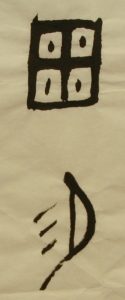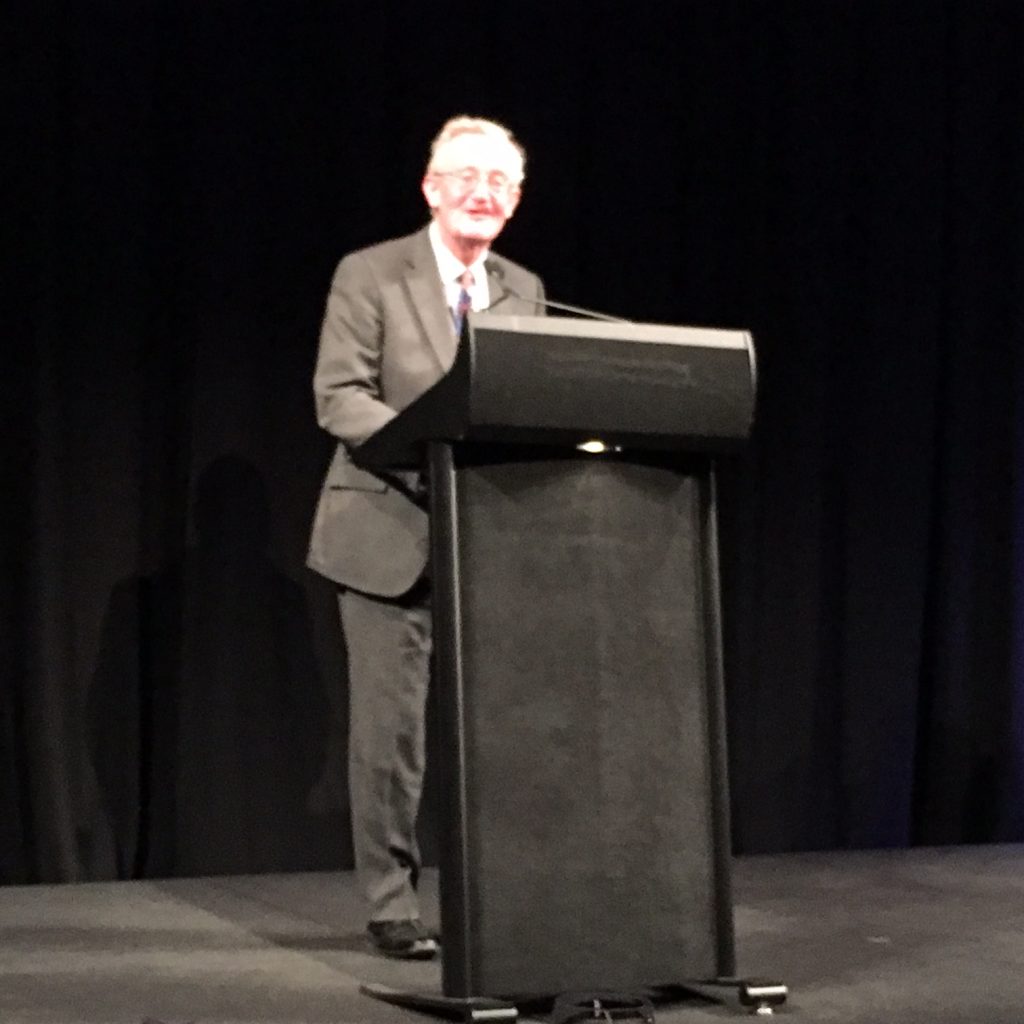On 18 November 2016, John Minford, co-founder of The Wairarapa Academy for New Sinology, received the inaugural Medal for Excellence in Translation from the Australian Academy of the Humanities for his translation of the Chinese classic of divination, the I Ching 易經.
The Expert Panel of judges that oversaw the award of the medal observed in its citation that the Minford I Ching:
Bids fair to become the definitive translation of this primary Chinese classic. An imposing example of the translator-scholar as cultural intermediary, it is both a tour de force of scholarship and a distinguished literary achievement. Minford adopts a thoughtful, original, flexible approach to the challenges of his task as translator, offering a significantly new interpretation of a piece of major world literature.
At the award ceremony preceding the annual Dinner of Fellows, held at the Melbourne Arts Centre, John made a short speech, the gist of which follows. — The Editor

The translator began by thanking his friend Nicholas Jose for so kindly and bravely nominating his work for this award. He also thanked his friend Ken George [former Director of the former School of Culture, History and Language at The Australian National University, Professor Minford’s former employer], who, when the book was given 0/5 by the relevant government department [as part of its annual metrics accounting of ‘academic outputs’ and worth], went into battle like a true Warrior of Light, and had the original decision reversed to 5/5!
The translator gratefully received the medal on behalf of the living I Ching 易經, which as generations of Chinese commentators have testified, is not so much a book but a spirit 神. He went on to say that he had consulted The Oracle earlier that day, and had asked it what it wished to say to the gathered Fellows of the Academy. It responded with the following:
Fellowship
同人
When two share Heart-and-Mind in Fellowship, their strength can split bronze asunder. 二人同心,其利斷金
Words uttered from shared minds are fragrant as orchids. 同心之言,其臭如蘭 (These very words were later used to describe the bond of Fellowship of the Taoist Seven Sages of the Bamboo Grove 竹林七賢.)Fellowship it is that connects the Aspirations of the world. A shared Heart-and-Mind overcomes all obstacles.
Open-minded and selfless Fellowship comes as the fruit of spiritual Self-Cultivation, which the Taoist shares generously with others.
Ultimately all will be won over into this Great Fellowship.
(See Hexagram XIII, pages 123-129 of the translation. Many of the words used here come directly from the very early commentary known as The Great Commentary 大傳, or The Appended Words 繫辭.)
The translator concluded by remarking that, in its own founding document the Australian Academy of the Humanities describes itself as a Fellowship of Scholars, who serve their disciplines and the nation by promoting the contribution of the humanities for the public good.

The novelist Timothy Mo, John’s friend and a close associate of The Wairarapa Academy for New Sinology, had earlier described the translation as:
A creative masterpiece in itself … a kind of unholy resurrection, a cable that disappears into the abyss of a darker time. In it the Bronze Age predicts to the Information Age the shadow of what is to come. [See 易: A Cable into the Abyss of a Darker Time]
He recently wrote in an e-mail:
Didn’t join in the congrats on the award. Seemed a bit redundant. You’ve been Robin to Batman in bringing one of the greatest works in the world to English readers in one of the greatest translations ever. I wouldn’t give you a medal — I’d bury you in a jade suit in a solid gold mausoleum in Westminster Abbey.
The noted scholar of Chinese culture, Leo Ou-fan Lee 李歐梵, who wrote in support of John Minford being awarded the Academy Medal, is another associate of The Wairarapa Academy. He has said that the Minford translation of Change:
… is a work of art. But it is also extremely user-friendly, especially for general readers who wish to consult their fortunes with this book. They will find here, in Minford’s many-splendored prose, a largesse of wisdom and sheer mystical power.

